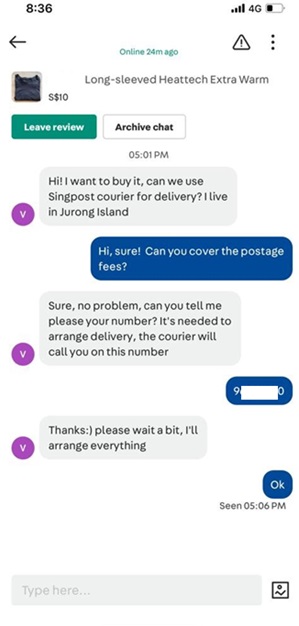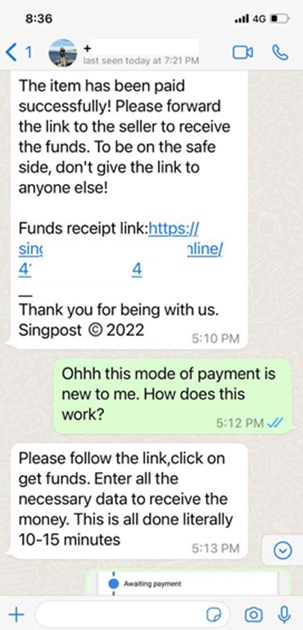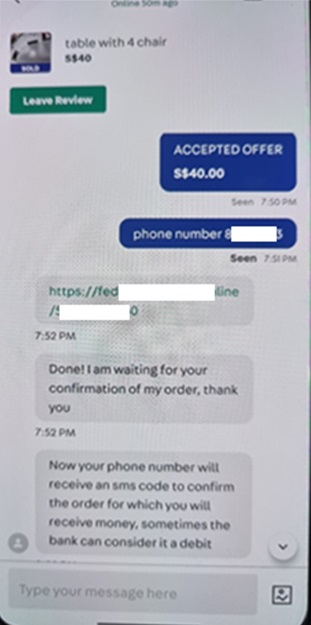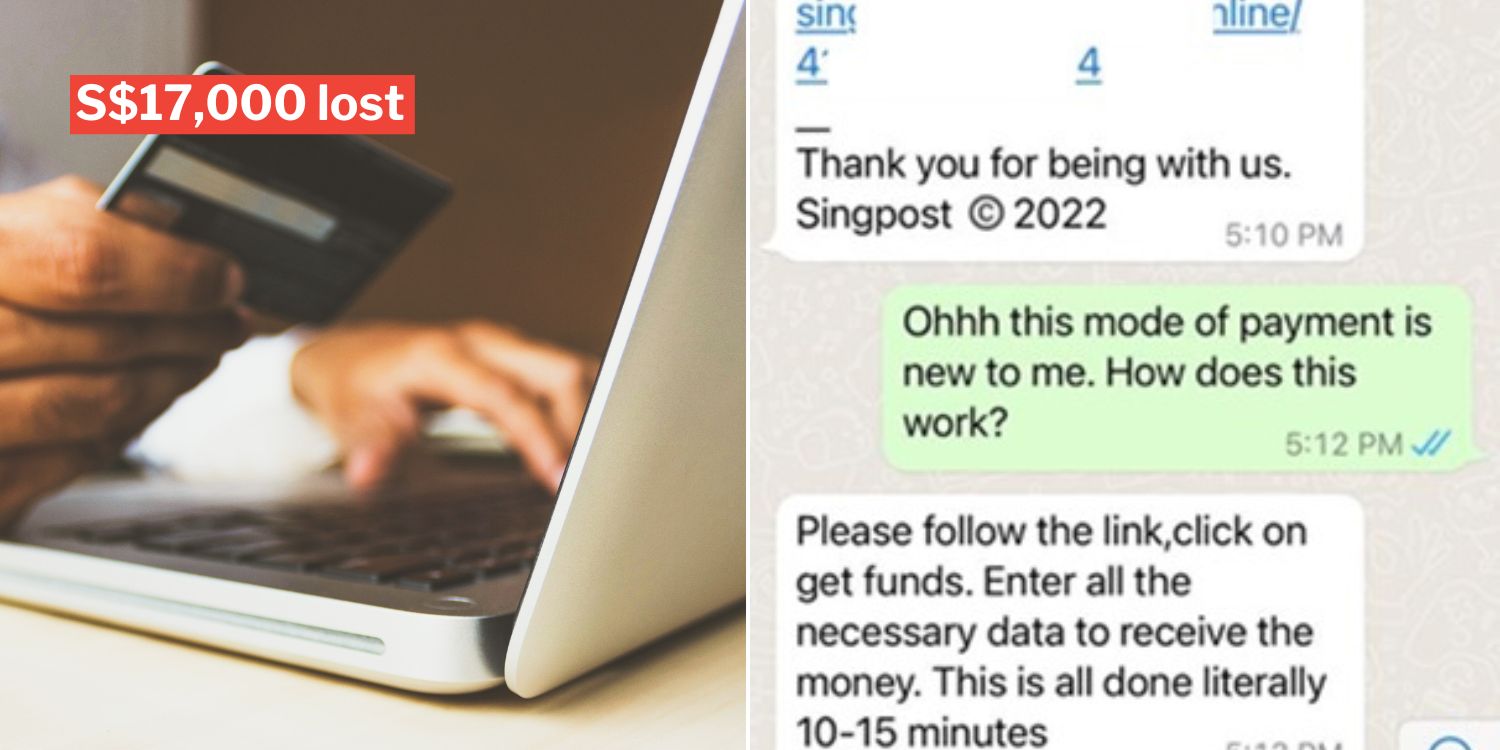Scammers Would Pose As Buyers In Carousell Scam, Instruct Sellers To Click Phishing Links To Get Payment
A scam over Carousell has tricked victims in Singapore into clicking on phishing links.
They then found their bank accounts emptied of cash via unauthorised transactions.

Photo for illustration purposes only. Source: Firmbee.com on Unsplash
At least 10 victims have lost S$17,000 to this returning scam since July.
Scammer poses as buyer, asks for seller’s number
In a news release on Friday (19 Aug), the Singapore Police Force (SPF) said a “phishing scam variant” has re-emerged.
Explaining how the scam works, SPF said the scammer would usually pose as a buyer who’s interested in an item being sold by the victim.
After a sale is agreed, the scammer would ask for the victim’s phone number, claiming the courier — a well-known logistics company like SingPost or FedEx — would call them.

Source: SPF
Scammer sends phishing link to victim
Later, the scammer would claim they’ve paid the courier, and send a clickable URL link to the victim.
This could be sent via Carousell’s chat function or third-party messaging apps like WhatsApp.

Source: SPF
They would explain that the victim merely has to click on the link to get their payment.

Source: SPF
However, this link is actually a phishing link.

Source: SPF
The scammer may also say that once the seller has received the funds, they’ll be contacted by the delivery provider.

Source: SPF
Victims redirected to phishing site
However, upon clicking on the link, victims would be directed to fraudulent websites.
They’ll be prompted into keying in their banking details and One-Time Password (OTP) to get their payment.

Source: rupixen.com on Unsplash
Unauthorised transactions would later be made from their bank accounts.
Only then would they know too late that they’d fallen prey to a scam.
SPF advises public to beware of Carousell phishing scam
The SPF advised the public to beware of this Carousell phishing scam.
Some measures for netizens to avoid becoming victims are:
- Always verify the buyer’s account by checking their verification status, creation date, reviews and ratings.
- Don’t click on URL links sent via unsolicited emails and messages.
- Check directly with the e-commerce platform if in doubt over the authenticity of any info.
- Never disclose your banking details and OTP.
- Immediately report fraudulent transactions to your bank.
Those who have more info on such scams can call 1800-255-0000 or submit info through the SPF website.
Members of the public may also visit the ScamAlert website or call the anti-scam hotline at 1800-722-6688 to get more information on scams.
They can also join the “Spot the Signs. Stop the Crimes” campaign by opting to receive regular updates on scams.
For urgent help, the “999” hotline is always available.
Have news you must share? Get in touch with us via email at news@mustsharenews.com.
Featured image adapted from rupixen.com on Unsplash and Singapore Police Force.

Drop us your email so you won't miss the latest news.





